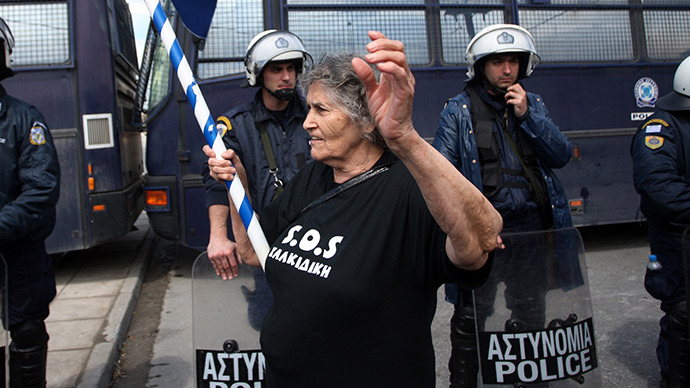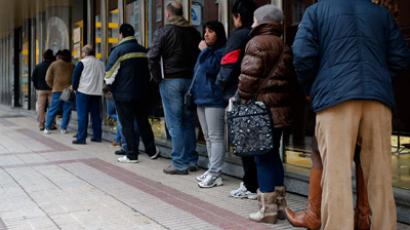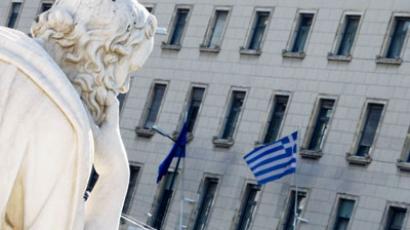Greece reaches $3.67bn bailout agreement

Athens and the ‘Troika’ of lenders- the European Commission, the International Monetary Fund, and the European Central Bank, have agreed on conditions for the next €2.8 ($3.67bn)bailout installment.
"We have a deal," Greek Finance Minister Yannis Stournaras told reporters at the Eurogroup meeting April 15 in Athens.
"The recent steps taken by the authorities suggest that the March milestones are likely to be achieved in the near future," the lenders said in a joint statement.
The new wave of aid comes after the three lenders evaluated
Greece's latest fiscal performance and deemed it was ‘on track’
with bailout targets, and its approval signals a stream of
confidence in the economic recovery of the island nation.
"The mission's view is that debt sustainability remains on track," the Troika statement said.
The recapitalization effort, according to the Troika, is ‘nearing completion’ with a lion’s share of the €50 billion bailout aid already distributed throughout Greek banks.
The bailout talks, which have been ongoing since March, "have
wrapped up, we have an agreement," Stournaras
said.
Future aid is contingent on Greece meeting the EU bailout requirements:
1) Reduce the number of civil servants
2) liberalize product and market services
3) privatize state-owned assets
4) reform its electricity sector.
Under the current bailout plan agreed to in November, 150,000
public servant jobs, a fifth of the sector, are to be slashed
between 2010-2015.
The long-term goal for Greece is to level out its debt/GDP ratio. Currently, the country’s debt is more than 160% of its GDP, and the IMF has mandated it be cut to 120% in order to be ‘sustainable'.
Greece has been granted €270 billion ($353 billion) in bailouts, which it receives in gradual stipend payments. The economy has been highly dependent on the loans since 2010.














